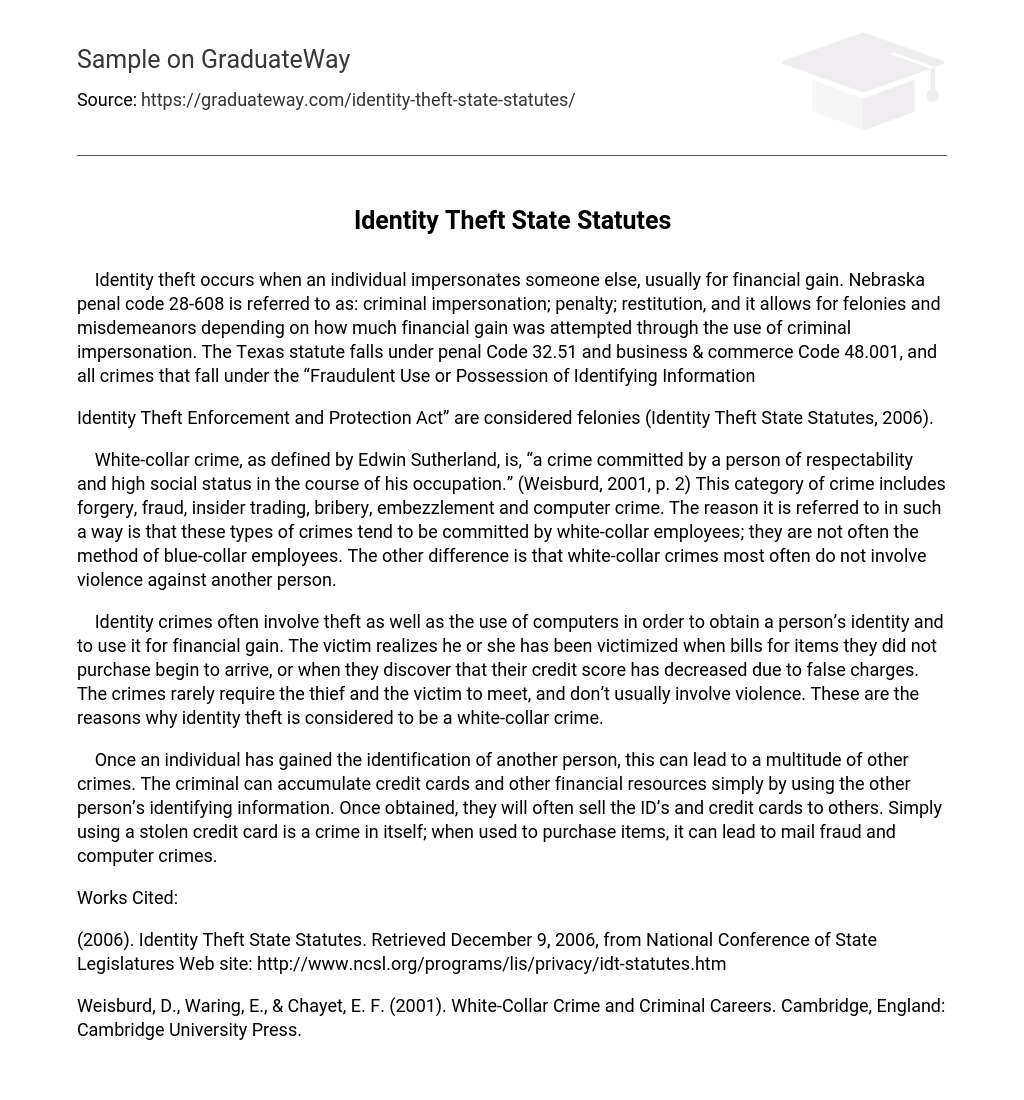Identity theft occurs when an individual impersonates someone else, usually for financial gain. Nebraska penal code 28-608 is referred to as: criminal impersonation; penalty; restitution, and it allows for felonies and misdemeanors depending on how much financial gain was attempted through the use of criminal impersonation. The Texas statute falls under penal Code 32.51 and business & commerce Code 48.001, and all crimes that fall under the “Fraudulent Use or Possession of Identifying Information
Identity Theft Enforcement and Protection Act” are considered felonies (Identity Theft State Statutes, 2006).
White-collar crime, as defined by Edwin Sutherland, is, “a crime committed by a person of respectability and high social status in the course of his occupation.” (Weisburd, 2001, p. 2) This category of crime includes forgery, fraud, insider trading, bribery, embezzlement and computer crime. The reason it is referred to in such a way is that these types of crimes tend to be committed by white-collar employees; they are not often the method of blue-collar employees. The other difference is that white-collar crimes most often do not involve violence against another person.
Identity crimes often involve theft as well as the use of computers in order to obtain a person’s identity and to use it for financial gain. The victim realizes he or she has been victimized when bills for items they did not purchase begin to arrive, or when they discover that their credit score has decreased due to false charges. The crimes rarely require the thief and the victim to meet, and don’t usually involve violence. These are the reasons why identity theft is considered to be a white-collar crime.
Once an individual has gained the identification of another person, this can lead to a multitude of other crimes. The criminal can accumulate credit cards and other financial resources simply by using the other person’s identifying information. Once obtained, they will often sell the ID’s and credit cards to others. Simply using a stolen credit card is a crime in itself; when used to purchase items, it can lead to mail fraud and computer crimes.
Works Cited:
(2006). Identity Theft State Statutes. Retrieved December 9, 2006, from National Conference of State Legislatures Web site: http://www.ncsl.org/programs/lis/privacy/idt-statutes.htm
Weisburd, D., Waring, E., & Chayet, E. F. (2001). White-Collar Crime and Criminal Careers. Cambridge, England: Cambridge University Press.





